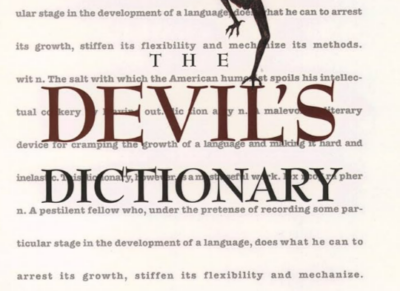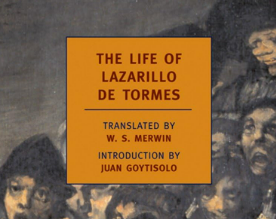91 Results with the "Satire" genre
Adventure Fiction (1164)
Biography (435)
Business & Finance (1)
Children's Literature (124)
Comics (6)
Culture (51)
Drama (123)
Dystopian (29)
Fable (86)
Fantasy (1132)
Fantasy (203)
Fiction (1010)
Finance (1)
Gothic Fiction (12)
Historical Fiction (615)
History (122)
Horror (56)
Lifestyle (36)
Literary (404)
Literary Fiction (207)
Memoir (113)
Mystery (422)
Non-fiction (87)
Novel (549)
Paranormal Fiction (96)
Philosophical (182)
Philosophy (45)
Poetry (249)
Political Fiction (14)
Politics (42)
Practical (32)
Psychological (4)
Psychological Thriller (108)
Relationship (6)
Romance Novel (716)
Romantic Melodrama (14)
Science (46)
Science Fiction (345)
Self-help (68)
Society (65)
Society (2)
Spiritual Growth (1)
story (2)
Thriller (704)
True Crime (56)
view (11)
Women's Fiction (2)
Young Adult (233)
-
Chapter
My Third Stage
 My Third Stage begins within the genteel backdrop of an afternoon social event, where civility masks the quiet churn of rivalry. At the center of this subtle drama is Sigismund Zaluski—a man whose foreign elegance and ease provoke both admiration and disquiet in those around him. His calm presence and cultured conversation hold sway over the company, drawing particular attention from Gertrude Morley, whose growing fondness for Zaluski is visible, though never spoken aloud. Among the onlookers is James…
My Third Stage begins within the genteel backdrop of an afternoon social event, where civility masks the quiet churn of rivalry. At the center of this subtle drama is Sigismund Zaluski—a man whose foreign elegance and ease provoke both admiration and disquiet in those around him. His calm presence and cultured conversation hold sway over the company, drawing particular attention from Gertrude Morley, whose growing fondness for Zaluski is visible, though never spoken aloud. Among the onlookers is James…-
33.6 K • Ongoing
-
-
Story
The Devil’s Dictionary
 The Devil’s Dictionary by Ambrose Bierce is a satirical and darkly humorous collection of witty, cynical definitions that expose the hypocrisies and absurdities of human nature, society, and language.
The Devil’s Dictionary by Ambrose Bierce is a satirical and darkly humorous collection of witty, cynical definitions that expose the hypocrisies and absurdities of human nature, society, and language.-
5.0 K • Nov 8, '24
-
5.2 K • Nov 8, '24
-
4.1 K • Nov 8, '24
-
-
Chapter
Chapter XI — Crome Yellow
 Chapter XI begins with the quiet absence left by Mr. Barbecue-Smith’s departure, creating a subtle shift in the energy of the house. Anne, Denis, Mr. Scogan, and Henry Wimbush are drawn outside, walking the estate grounds as if rediscovering it through shared reflection. Their steps slow near the old stone walls, and the conversation meanders into the design of the house itself—Crome’s enduring presence standing like a memory made solid. Henry, full of facts and affection, explains how Crome’s…
Chapter XI begins with the quiet absence left by Mr. Barbecue-Smith’s departure, creating a subtle shift in the energy of the house. Anne, Denis, Mr. Scogan, and Henry Wimbush are drawn outside, walking the estate grounds as if rediscovering it through shared reflection. Their steps slow near the old stone walls, and the conversation meanders into the design of the house itself—Crome’s enduring presence standing like a memory made solid. Henry, full of facts and affection, explains how Crome’s…-
141.2 K • Ongoing
-
-
 Chapter V unfolds as Lazaro recounts his time under the employment of a pardoner—a man skilled in the art of spiritual persuasion and even more adept at deceit. This pardoner makes his living selling papal indulgences, documents claiming to absolve sins in exchange for a fee, and he crafts every word and gesture to sell them convincingly. He begins his efforts with small bribes to the local clergy, giving wine, fruit, or small coins to secure their support in urging parishioners to buy. The pardoner…
Chapter V unfolds as Lazaro recounts his time under the employment of a pardoner—a man skilled in the art of spiritual persuasion and even more adept at deceit. This pardoner makes his living selling papal indulgences, documents claiming to absolve sins in exchange for a fee, and he crafts every word and gesture to sell them convincingly. He begins his efforts with small bribes to the local clergy, giving wine, fruit, or small coins to secure their support in urging parishioners to buy. The pardoner…-
108.4 K • Ongoing
-
-
Chapter
Chapter K
 Chapter K opens with an imagined history of the letter itself, tying K to an ancient culture known as the Cerathians, who Bierce claims once flourished in the land of Smero. The letter's modern form, according to his mock-history, emerged from a catastrophe—the collapse of a sacred temple—which transformed the Cerathian character “Klatch” into a symbol of loss and ruin. Bierce connects the shape of the letter to tragedy, humorously suggesting that the alphabet itself bears the weight of forgotten…
Chapter K opens with an imagined history of the letter itself, tying K to an ancient culture known as the Cerathians, who Bierce claims once flourished in the land of Smero. The letter's modern form, according to his mock-history, emerged from a catastrophe—the collapse of a sacred temple—which transformed the Cerathian character “Klatch” into a symbol of loss and ruin. Bierce connects the shape of the letter to tragedy, humorously suggesting that the alphabet itself bears the weight of forgotten…-
82.1 K • Ongoing
-
-
Chapter
Chapter XXIII — Crome yellow
 Chapter XXIII opens with an unexpected shift in Gombauld’s mood. Just moments before, frustration had bubbled under his calm exterior, mostly directed at Anne. But when Mr. Scogan and Denis step into the studio, the irritation vanishes, replaced by a sudden buoyancy. Their arrival acts as a welcome disruption, saving Gombauld from what might have turned into a quarrel. He greets them with exaggerated warmth, even inviting them to inspect his latest work. Mr. Scogan immediately obliges, leaning in to…
Chapter XXIII opens with an unexpected shift in Gombauld’s mood. Just moments before, frustration had bubbled under his calm exterior, mostly directed at Anne. But when Mr. Scogan and Denis step into the studio, the irritation vanishes, replaced by a sudden buoyancy. Their arrival acts as a welcome disruption, saving Gombauld from what might have turned into a quarrel. He greets them with exaggerated warmth, even inviting them to inspect his latest work. Mr. Scogan immediately obliges, leaning in to…-
141.2 K • Ongoing
-
-
 Chapter VIII: How Lazaro Brought a Lawsuit against His Wife begins as Lazaro enjoys a brief period of comfort and recognition. His status has grown, his purse is full, and with it comes a swarm of companions eager to flatter him. These new friends are not drawn by loyalty, but by the shine of his good fortune. It is they who begin whispering rumors into his ear—stories about his wife and her closeness with the archpriest. They claim that she’s more than just familiar with the man who had once helped…
Chapter VIII: How Lazaro Brought a Lawsuit against His Wife begins as Lazaro enjoys a brief period of comfort and recognition. His status has grown, his purse is full, and with it comes a swarm of companions eager to flatter him. These new friends are not drawn by loyalty, but by the shine of his good fortune. It is they who begin whispering rumors into his ear—stories about his wife and her closeness with the archpriest. They claim that she’s more than just familiar with the man who had once helped…-
108.4 K • Ongoing
-
-
Chapter
Chapter V
 The chapter opens with Mollie, the vain mare, becoming increasingly unreliable as winter approaches. She neglects her duties, admires her reflection, and is eventually confronted by Clover about consorting with a human from a neighboring farm. When Clover discovers hidden sugar and ribbons in Mollie's stall, it confirms her suspicions of betrayal. Mollie soon abandons Animal Farm altogether, choosing a life of comfort under human care, symbolized by her appearance pulling a dogcart with a red ribbon—a…
The chapter opens with Mollie, the vain mare, becoming increasingly unreliable as winter approaches. She neglects her duties, admires her reflection, and is eventually confronted by Clover about consorting with a human from a neighboring farm. When Clover discovers hidden sugar and ribbons in Mollie's stall, it confirms her suspicions of betrayal. Mollie soon abandons Animal Farm altogether, choosing a life of comfort under human care, symbolized by her appearance pulling a dogcart with a red ribbon—a…-
23.3 K • Ongoing
-
-
Chapter
Chapter I — Crome Yellow
 Chapter I begins with Denis sitting in a slow-moving train, watching the countryside blur past in measured monotony. Each stop, marked by oddly named stations, becomes a quiet reminder of how unremarkable the journey has been so far. He doesn’t travel with excitement but with an undercurrent of fatigue, both physical and mental. His suitcase shuffles from one seat corner to another, not out of necessity but as a way to distract himself from the weight of wasted time. Thoughts swirl as he counts the…
Chapter I begins with Denis sitting in a slow-moving train, watching the countryside blur past in measured monotony. Each stop, marked by oddly named stations, becomes a quiet reminder of how unremarkable the journey has been so far. He doesn’t travel with excitement but with an undercurrent of fatigue, both physical and mental. His suitcase shuffles from one seat corner to another, not out of necessity but as a way to distract himself from the weight of wasted time. Thoughts swirl as he counts the…-
141.2 K • Ongoing
-
-
Chapter
My Fourth Stage
 My Fourth Stage unspools in the carefully curated world of Mrs. Milton-Cleave, a woman who thrives on appearances and subtle manipulation. Known for her tasteful luncheons and careful conversation, she moves through her day with a practiced grace that conceals her desire to influence those around her. That day, her mind lingers not on her usual preoccupations but on a passing moment she witnessed—Gertrude Morley and Sigismund Zaluski walking together in the garden, absorbed in each other’s company. The…
My Fourth Stage unspools in the carefully curated world of Mrs. Milton-Cleave, a woman who thrives on appearances and subtle manipulation. Known for her tasteful luncheons and careful conversation, she moves through her day with a practiced grace that conceals her desire to influence those around her. That day, her mind lingers not on her usual preoccupations but on a passing moment she witnessed—Gertrude Morley and Sigismund Zaluski walking together in the garden, absorbed in each other’s company. The…-
33.6 K • Ongoing
-
- Previous 1 … 5 6 7 … 10 Next
